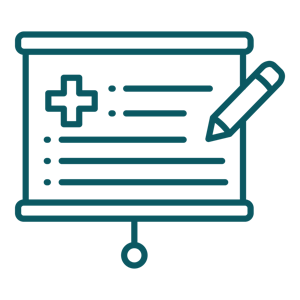Understanding Health Policy Development
Public health research is essential to health policy development. Researchers and policy experts will identify issues that need consideration, test evidence-based or new interventions, and let the data inform the policy construction. Once implemented, experts will test policy rollout and efficacy through policy analysis. For example, there are federally regulated health policies to ensure our food is safe, individuals cannot drive after a certain amount of alcohol, and employees cannot work over a certain amount of hours per week. These policies were heavily researched and are evidence-based solutions to common public health issues.
The Role of Health Management in Service Delivery
Health systems often have multi-billion dollar operating budgets and a massive influence in their local communities. There is a bidirectional influence between health systems and local and federal policies. When policies change, health systems and health managers in service delivery can be the first to feel the effects. For example, numerous health policies ensure patients have unbarriered access to their personal health information.3
There are various policies to ensure the protection and privacy of patients’ personal health information.4 Besides privacy, considerable policies regulate the quality, accessibility, and availability of service delivery. Aside from regulations and policies, healthcare management has autonomy over service delivery. Hospital leadership can decide, with stakeholder input, of course, which insurance they want to accept, if they will operate with a lean Six Sigma model, and the health services they provide (i.e., adding telemedicine, home health, or advanced diagnostic testing).
In addition to their operating autonomy, large health systems can also affect local, state, and federal public policy. For example, health care providers can contribute to the advocacy efforts for Medicaid to cover certain services, like street medicine.6 This all culminates in public health management playing a large role in service delivery.
Navigating Healthcare Systems and Structures
The United States has a notoriously complex health care system.5 We have multiple options for insurance - public insurance that is publicly funded, such as Medicaid and Medicare; private insurance that is publicly funded, through the state or federal marketplace; and private insurance that is privately funded, which is often through an employer or directly through the insurance company. There are multiple ‘tiers’ or levels to insurance, supplemental plans, separate dental and vision plans, and the list goes on. Healthcare management organizations can ease the burden of navigating these complex systems by providing case managers, patient navigators, and community health educators to guide folks through the system.
The Influence of Socio-Economic and Political Factors on Health Policy
Health policy continuously changes and iterates with our evolving socio-economic and political environments. Each new political administration, at the local, state, and federal levels, usually tweaks health policies to their liking. Large-scale policy changes, like the Patient Protection and Affordable Care Act in 2010, to smaller-scale policy changes, like Pennsylvania transitioning from a Federally Facilitated Marketplace to a State-Based Marketplace, both significantly impact their respective constituents. As the country continues to evolve, research, and learn more, public health policy will continue to iterate and develop to meet constituents’ wants and needs.




